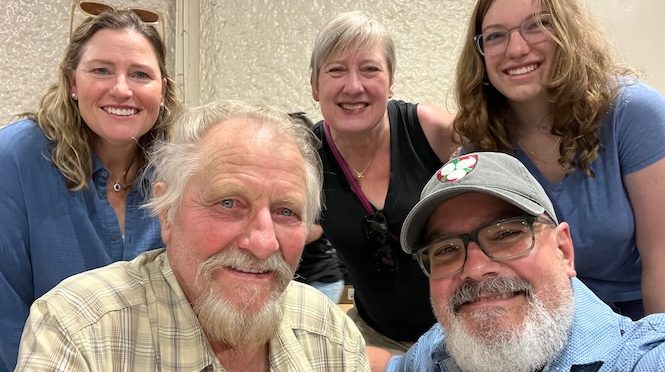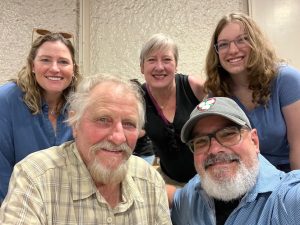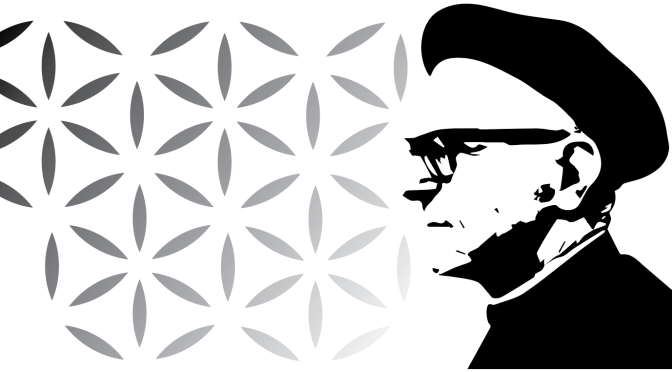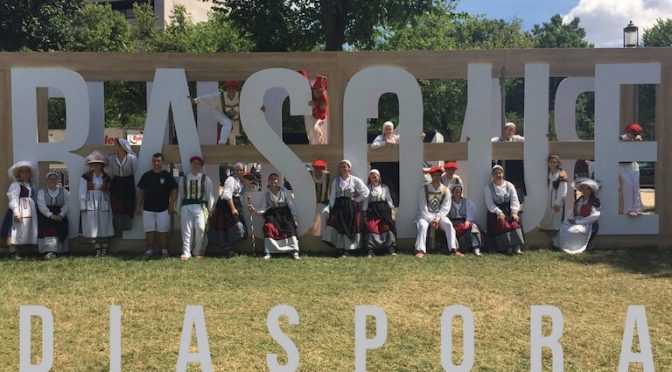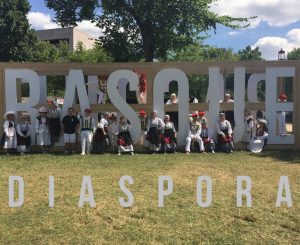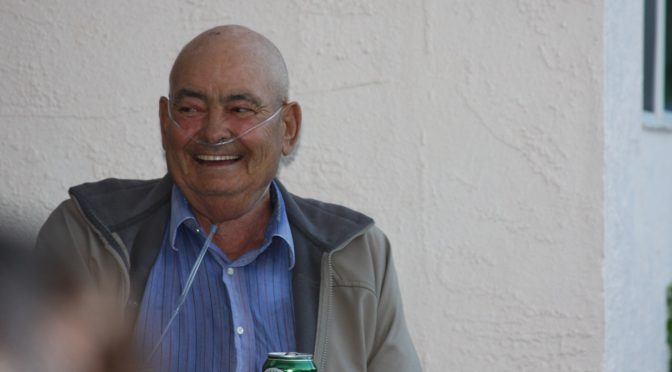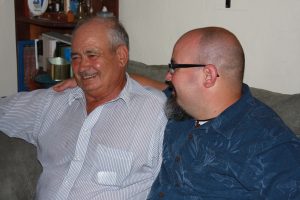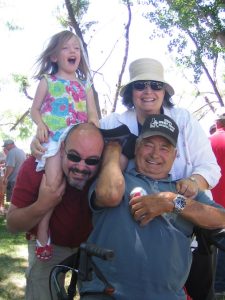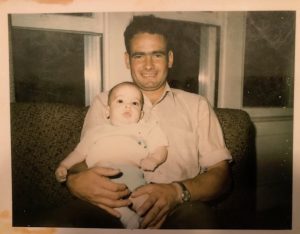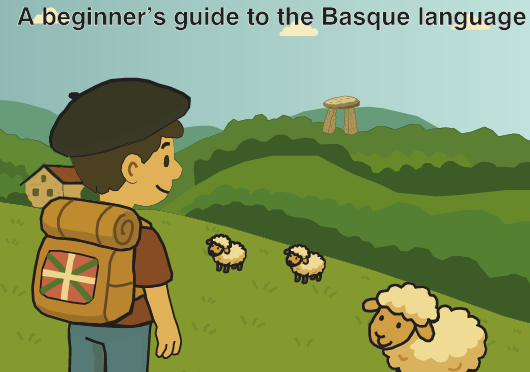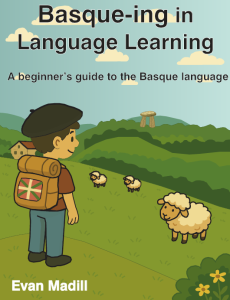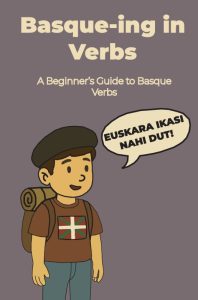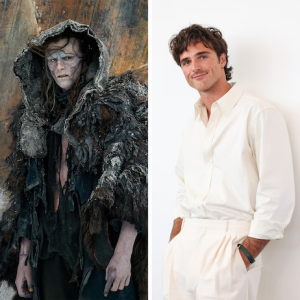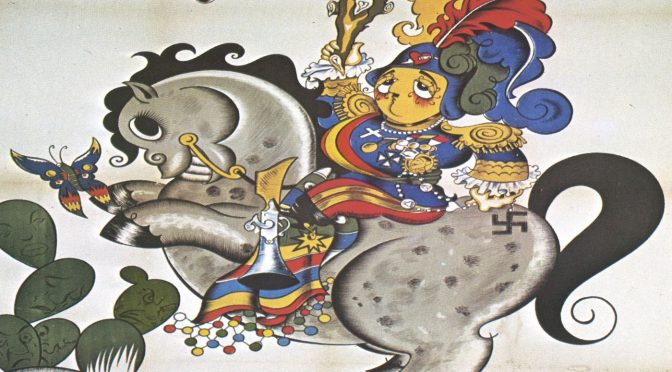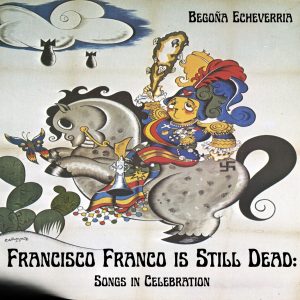Over 100 years ago, in 1921, José Miguel de Barandiaran began publishing a series of articles under the banner of Eusko-Folklore. His work was interrupted by the Spanish Civil War but in 1954 he resumed publishing what he then called his third series of articles. These appeared in the journal Munibre, Natural Sciences Supplement of the Bulletin of the Royal Basque Society of Friends of the Country. While various writings of Barandiaran have been translated to English, I don’t believe these articles have. As I find this topic so fascinating, I have decided to translate them to English (with the help of Google Translate). The original version of this article can be found here.
Traditions and Legends: Lurpeko Eremuetan (In the Subterranean Regions)
Once they were on a long journey, and those traveling had many beliefs about the Lady of Amboto. They had to pass through the Atxorrotx cave in Escoriaza, and as they crossed it, a gust of wind came upon them and carried them to the far side. When they left, they said that [it] was the Lady of Amboto.
(Communicated in 1935 by José Aramburuzabala, from Escoriaza).
Some shepherds lived in Atxorrotx; but every day they were missing a couple of sheep. They thought the thieves had them stored in the Atxorrotx cave. They went there; but they couldn’t get inside at all, no matter how hard they tried. Then they went to a priest and told him their story and asked the priest for advice.
He gave it to them, and they returned to the cave, and, unnoticed, they went all the way to the bottom and saw nothing but a pile of bones. That year, the Lady of Amboto had changed her residence, and instead of living in Kurtzebarri, she lived in Atxorrotx, and she gathered sheep to eat them.
(Reported by José Aramburuzabala in 1935.)
In Amboto, there lives a very beautiful lady, who used to pass Kurtzebarri every day, throwing fire and making a lot of noise. As she crossed the sky, she combed her long blond hair. That lady combed her hair with a beautiful comb, making a pir-pir sound with it. But a wicked young woman stole it. But, since the Lady of Amboto was clever, she noticed this and went to the young woman’s house and told her to return the comb and leave it in Kurtzebarri’s cave; otherwise, she would turn it into fire. Then the young woman, frightened, took the comb that made the pir-pir sound and left it in the place that the Lady of Amboto had shown her. The next day they went to the cave; but the comb wasn’t there, because the Lady of Amboto had taken it.
(Communicated in 1935 by José Aramburuzabala, from Escoriaza),
IN AZPEITIA
A shepherd was tending sheep in Burumendi. He was thirsty and was looking for water. He approached a cave when he saw a young lady elegantly dressed, and that lady asked him: “What are you doing, little man?”
“Here I am, looking for water, because I’m thirsty.”
“Water? Do you mean cider?”
And she brought him cider in a beautiful jar.
“This is really good cider. Where did the apple come from that made it?”
“This was made with apples given to no (thrown away) by the owner of the Montes de Icazteguieta house.”
The man was amazed. What is given to no, no takes, goes the proverb.
(Told in 1925 by José María Aguirrezabala, from Azpeitia, and reported by Mr. Rezola in the same year.)
IN CERAIN
In Cerain there is a baserri named Euzkitza. There, one day, as a furious storm had broken out, the mother asked a daughter to close the attic windows. The girl refused. Then her mother cursed her, saying the devil would take her. The girl went up to close the windows; but she didn’t come down. The devil had taken her.
Now she resides sometimes in Aizkorri, sometimes in Aralar, and sometimes in Amboto. In Aizkorri, she once brought a ram to her cave. The shepherds went to ask for the ram. She was sitting on the ram, and another young woman was combing her hair. The shepherds had entered and poured blessed wax, and so they recovered the ram and took it out of the cave.
(Reported by Mrs. Jauregia, from Cerain, July 4, 1954.)
IN ZALDIVIA
In a house in Beasain, a husband and wife lived with seven children. The wife was very wicked and refused to go, under any circumstances, to make any presentation at the temple, despite her husband’s insistence.
On one occasion, the husband told her: “Whether you like it or not, you must go this time.”
And having tied the woman to the cart, the man was heading toward the church. But the woman, answering to her husband, “You insist in vain, yes; even if you want to, you won’t take me,” she cried out, adding “The devil take me.”
And as she asked, the demons took her, breaking the chains and the ropes, leaving the cart empty. But they didn’t admit her to hell, and from then on, she has wandered from Murumendi to Aizkorri and from here to Aralar.
In Murumendi (1), she has often been seen combing her hair. At dusk, she moves from one mountain to another, spewing fire and flames.
(1) Murumendi is a mountain above Isasondo. Mari is supposed to live in one of its chasms.
(Reported in 1935 by José María Suquia, from Zaldivia.)
Many people from Amézqueta and Abalcisqueta would go to see the Lady of Muru (2). And when they entered the chasm where the lady was, they would always find her combing her hair. And they had to go to her with blessed candles. The lady had many things made of gold. One of the times they went there, someone quietly stole a gold vessel from her; and later, upon returning home, she put her hand inside the vessel and found a toad inside.
(2) Naiñarri is one of the mountains in the Aralar mountain range. It contains the chasm called Marizulo, where the genius Mari also spends time.
(Reported in 1935 by José María Suquía, from Zaldivia.)
IN LAZCANO
In Murugüen (3), Beasain, there was a woman, mother of seven children. Possessed as she was, (possessed by devils), she did not go to church. Since she could not do so in any other way, once her husband brought her tied up in a cart along the church road. But when she arrived at the edge of the church, she said to her husband: “Matías de Muru, seven children for the world, and none for heaven.”
(3) Murugüen, baserri of Beasain.
Having said that, she flew into the air, and today she still lives, and many see her on certain nights as she passes from Murumendi to the Aizkorri cave, and from Aizkorri to Murumendi.
There is a shepherd who has seen her outside the cave combing her hair with a rake.
(Reported in 1935 by Anastasio Arrinda, from Lazcano.)
IN REGIL
The Lady of Murumendi passes many times, at least in winter: sometimes in the air; other times, however, on the road with loud clattering chains.
(Communicated in 1935 by Juan Galarraga).
IN AMEZQUETA
Mari was from a house called Iraregui. That house is below the Txindoki. On a certain feast day, Mari didn’t want to go to mass, and her mother told her: “Let’s go to mass.”
“I’m not going,” she replied, and she didn’t go.
Her mother told her: “Stay there! By the time I get back from mass, may the devil from hell take you!” And when the mother returned, Mari was missing. The devil from hell had taken her to the Txindoki chasm.
A short time later, having appeared to her relatives, she told them: “The devil has me tied up with a chain; but if you do what I tell you, I can free myself. Look: place those blessed rosaries in the house on top of the walnut tree in the doorway, beat it, and take the nuts to Rome.” Her relatives replied that this was madness and did nothing. On another occasion, she also appeared to the relatives and instructed them to make a small altar and place it in that Txindoki chasm. They made the altar; but they did not make the small hollow in front of it, (1) and that is why Mari was not freed or saved. Sometimes she emerges, in fire and flame, from that Txindoki chasm and heads toward San Miguel (2).
(1) Space intended for the relics of saints.
(2) San Miguel, sanctuary in the Aralar mountain range.
(Reported in 1930 by Ignacio Altuna, from Amézqueta).
In the forest of the baserri called Zubiñ de Ugarte in Amézqueta lies Azari-zulo, a place of rest for when the Lady of Aralar is moving from house to house. They say that this Lady is an evil daughter, cursed by her mother. “May the devil take you!” she had told her.
And she immediately (turned) into fire and flame, she hid.
She lives in three caves. One in Aralar; another time in Aizkorri and in Burumendi. Terrible thunder and lightning occur at night when this witch moves from one mountain to another.
Two strong men, loaded with saints (medals) and scapulars, once went to the chasm where this witch was, in order to find out what she was. And they found her combing her hair, with two golden candlesticks in front of her.
When she saw those men, she went to the back of the cave, abandoning the candlesticks. And the men hid the two candlesticks in their bellies and carried them home. But by the time they had arrived home, the golden candlesticks had been turned into toads.
(Communicated in 1931 by J. Arandia, from Amézqueta).
José Miguel de Barandiaran
Share this / Partekatu hau:
Like this:
Like Loading...

